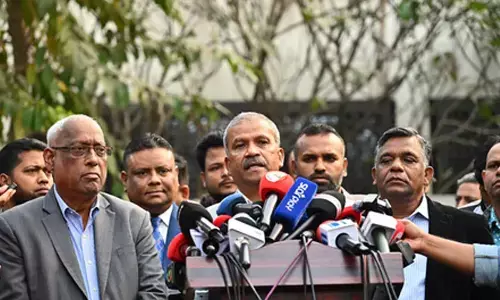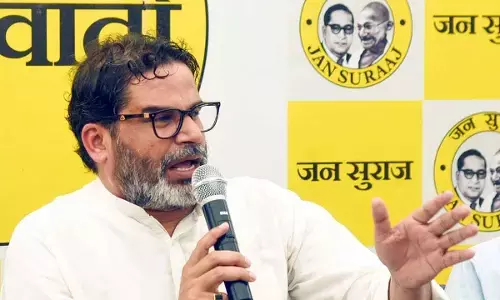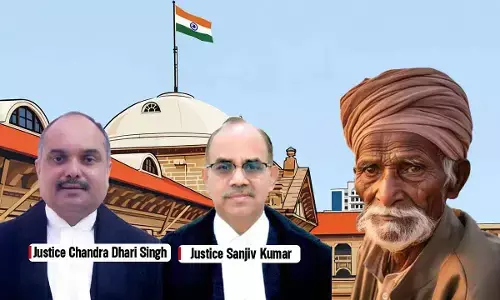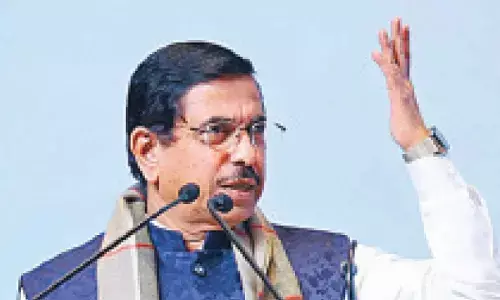Govt did not ask for Urjit’s resignation, says Jaitley
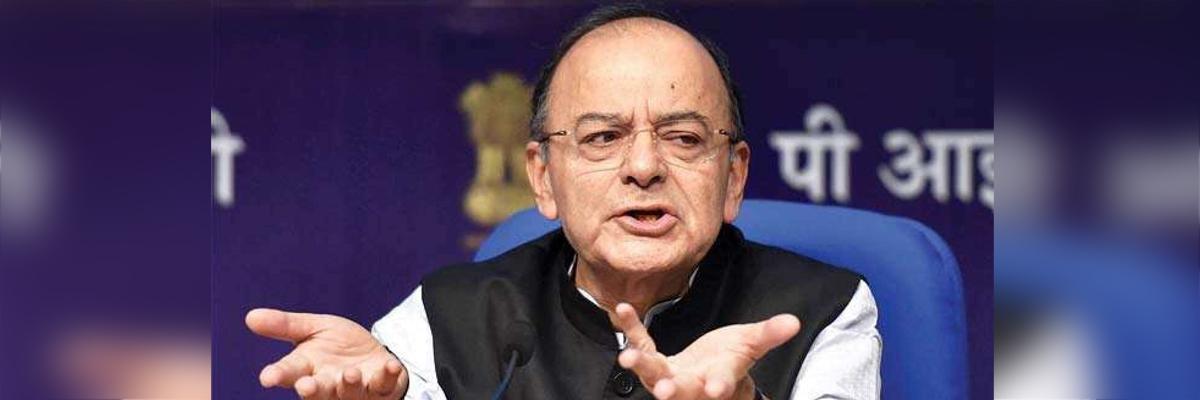
Finance Minister Arun Jaitley on Tuesday said the government did not seek resignation of Urjit Patel as RBI Governor over differences on some issues, and went on to cite how central bank heads were made to resign under prime ministers Jawaharlal Nehru and Indira Gandhi and when Yashwant Sinha was finance minister
New Delhi: Finance Minister Arun Jaitley on Tuesday said the government did not seek resignation of Urjit Patel as RBI Governor over differences on some issues, and went on to cite how central bank heads were made to resign under prime ministers Jawaharlal Nehru and Indira Gandhi and when Yashwant Sinha was finance minister.
Defending his government's demands from the Reserve Bank to address certain issues including liquidity or fund problem in certain sectors, he said that there is no threat to the autonomy of the central bank.
Patel, who was brought in by Prime Minister Narendra Modi-government in 2016 after a second term was denied to outspoken former IMF chief economist Raghuram Rajan, in a surprise move resigned as RBI Governor on December 11. Many blamed the pressure brought by the government on the central bank to ease lending restrictions and release more of its capital to bolster the economy for Patel's resignation.
"Sarkar ki unse koi istife ki apeksha nahi thi (The government did not seek Patel's resignation)," Jaitley said when asked about Patel's resignation at a programme here. The government had cited the never-used-before provision of the RBI Act that gives it powers to issue directions to the Governor, to get the central bank to discuss its areas of concerns.
Two board meetings after that were "cordial" and decisions were taken on three-four issues while there were also some on which no decision was taken, he said, adding the issue of paring of some of RBI's over Rs 9 lakh crore reserves after deciding on an appropriate size of buffer was decided to be referred to an expert committee. While the committee was decided to be formed in the RBI board meeting held on November 19, a consensus on the composition eluded till Patel resigned. Jaitley said the expert committee would be announced in few days time.
"So if you are saying that raising these issues is an infringement on autonomy, this is wrong," he said.
He then went on to cite past RBI governors who had resigned. "The first governor to resign was in 1955 when Prime Minister Pt Jawaharlal Nehru wrote to Governor B Rama Rau that economic policy is to be framed by Government of India and monetary policy is to be framed by you. But your other policies like credit policies have to be in support of the government's economic policies.
And if are suggesting you would resign, 'I am unable to advise you to the contrary'. So he resigned," he said. Indira Gandhi got Sarukkai Jagannathan to resign after he refused to give an enhanced loan to Maruti. "Yashwant Sinha, who became the high priest of RBI autonomy, during the Chandra Shekhar government called RBI Governor R N Malhotra and said I want your resignation," he added. Former finance minister P Chidambaram, Jaitley said, was "not on speaking terms with two Governors during his tenure."
Many central banks around the world maintain 8 per cent of gross assets as reserves while conservative ones maintain at 13-14 per cent. RBI maintains it at 28 per cent, Jaitley said. "In 2013 they said that you have Rs 1.46 lakh crore in excess you give. Then no one said that it is raiding the Reserve Bank," he said, adding reserves released can be used for infusing capital in public sector banks as well as for schemes for the benefit of poor.
"I don't need these funds for funding fiscal deficit, or government expenditure for this year till the month of May. I don't need even one rupee," he said and cited a letter written by Rajan as the chief economic advisor of the government in 2013 to RBI asking how much capital did it require?












